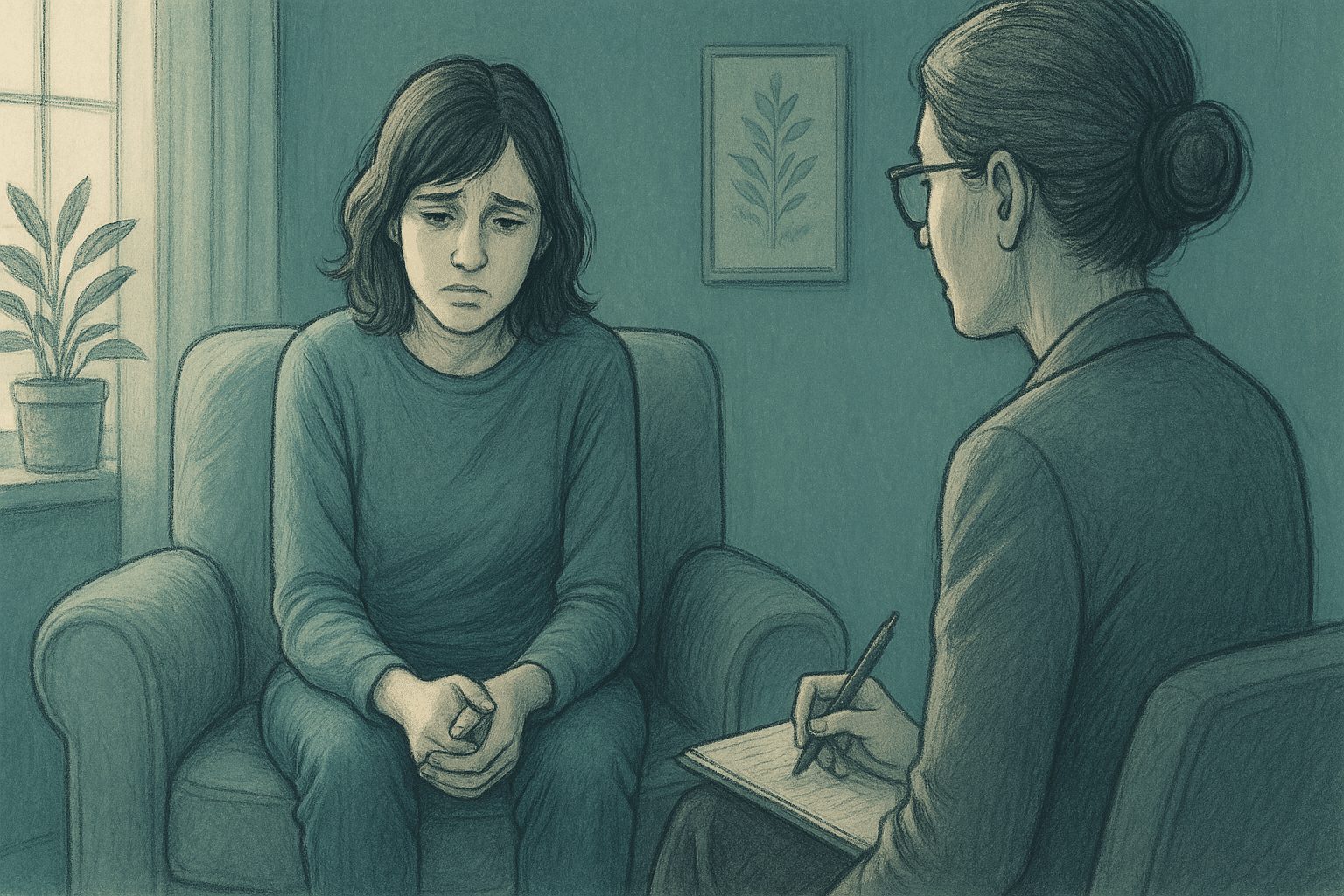Key Takeaways
- Trauma triggers are unique to each individual and can be identified through self-awareness and reflection.
- Common trauma triggers include certain sounds, smells, places, or even specific times of the year.
- Documenting patterns in your reactions can help in recognizing these triggers effectively.
- Strong support systems including trusted loved ones, mental health professionals, and support groups are essential for managing trauma triggers and maintaining long-term healing.
- A Mission For Michael (AMFM) offers comprehensive trauma therapy with specialized approaches including EMDR, somatic techniques, and trauma-informed care delivered by experts in trauma treatment facilities across California, Minnesota, and Virginia.
Spotting Trauma Triggers
Identifying Common Triggers
A trigger is anything that reminds you of a past trauma and causes a strong emotional or physical reaction. These triggers can vary significantly from person to person, as they are deeply rooted in individual experiences and memories.
Here are some of the most common external and internal trauma triggers:
External Trauma Triggers
- Sensory Cues: Visuals, sounds, smells, tastes, or touch sensations that resemble those present during a traumatic event can trigger anxiety or flashbacks like loud music, specific scents, or flashing lights.
- Significant Dates: Anniversaries of traumatic events, holidays, or birthdays can unexpectedly bring up intense emotions and memories.
- Familiar Locations: Walking by or visiting places linked to the trauma (or even ones that look similar) can bring back distressing feelings.
- Loud, Sudden Sounds: Unexpected noises such as fireworks, sirens, or alarms can be startling and trigger emotional responses tied to past experiences.
- Arguments or Verbal Conflict: Witnessing people argue or being involved in tense conversations can be particularly triggering, especially for individuals with a history of abuse.
- Physical Touch: Even casual or harmless physical contact can feel threatening or uncomfortable for those who’ve experienced physical or sexual trauma.
- Disturbing News Content: Watching or listening to reports about violence, natural disasters, or tragedies can lead to emotional distress and trigger trauma symptoms.
Internal Trauma Triggers
- Flashbacks or Invasive Thoughts: Vivid memories or sudden thoughts of the trauma can pop up unexpectedly and be emotionally overwhelming.
- Feeling Helpless or Powerless: Situations that bring back a sense of losing control or being trapped can echo the emotional intensity of the original trauma.
- Feeling Alone or Abandoned: Experiences of being excluded or emotionally unsupported can reignite past feelings of fear, sadness, or vulnerability.
- Rejection or Harsh Judgment: Negative social interactions, criticism, or feeling misunderstood can lead to strong emotional reactions tied to earlier trauma.
- Feeling Overwhelmed: Being overloaded with responsibilities or mental stress can trigger memories of chaos or instability from the past.
- Receiving Criticism: Even mild or constructive feedback can stir up emotional pain, particularly if it mirrors past experiences of harsh treatment.
- Money-Related Stress: Talking about finances or dealing with money issues can be highly triggering, especially for those who’ve faced financial trauma.
Documenting Patterns
Once you start noticing potential triggers, document them in a journal to help spot patterns and gain a clearer understanding of what sets them off.
- Write down your feelings and reactions when you encounter a potential trigger.
- Track any physical symptoms, such as increased heart rate or sweating.
- Note any recurring themes or situations that seem to provoke a strong response.
| A Mission For Michael: Expert Mental Health Care Founded in 2010, A Mission For Michael (AMFM) offers specialized mental health care across Southern California, Minnesota, and Virginia. Our accredited facilities provide residential and outpatient programs, utilizing evidence-based therapies such as CBT, DBT, and EMDR. Our dedicated team of licensed professionals ensures every client receives the best care possible, supported by accreditations from The Joint Commission and the California Department of Health Care Services. We are committed to safety and personalized treatment plans. Start your recovery journey with AMFM today! |
Coping Strategies For Dealing with Triggers
Deep Breathing Techniques

Deep breathing is a simple yet powerful tool for managing trauma triggers.
To practice deep breathing, find a quiet place where you can sit comfortably. Close your eyes and take a slow, deep breath in through your nose, filling your lungs completely.
Hold the breath for a moment, then slowly exhale through your mouth. Repeat this process several times, focusing on the sensation of your breath moving in and out of your body.
Mindful Grounding Exercises
Grounding exercises help you focus on the present moment, pulling your attention away from distressing memories or thoughts. One popular grounding technique is the 5-4-3-2-1 exercise.
Begin by identifying five things you can see around you. Next, focus on four things you can touch, followed by three things you can hear, two things you can smell, and one thing you can taste. This exercise engages all your senses, helping to anchor you in the present moment.
Engaging in Self-Care
Self-care isn’t just about pampering yourself; it’s about taking steps to maintain your mental and emotional health. You can do this by establishing a regular sleep routine to ensure you’re getting enough rest, incorporating physical activity into your daily routine, and practicing relaxation techniques, such as meditation or yoga, to calm your mind.
Engaging in self-care can help you feel more grounded and better equipped to handle triggers when they arise.
Support Systems and Resources for Trauma
Reaching Out to Loved Ones
If you’re struggling with trauma, your loved ones can be a great source of comfort and support. Sharing your experiences with them can help them understand what you’re going through and how they can assist you.
Communicate your needs clearly. Let them know how they can help, whether it’s through listening, offering distraction, or providing a safe space. Remember, you don’t have to face your triggers alone.
Finding Professional Help

Professional help is invaluable when dealing with trauma triggers.
Therapists and counselors are trained to help you understand and manage your triggers effectively. They can offer specialized techniques and coping strategies customized to your needs.
If you’re unsure where to start, consider reaching out to a local mental health clinic or searching online for therapists who specialize in trauma. Many professionals offer teletherapy options, making it easier to access help from the comfort of your home.
Support Groups
Support groups can be an excellent resource for connecting with others who have similar experiences since they understand what you’re going through. Sharing your story and hearing others’ can provide a sense of community and understanding.
Building Resilience Over Time
Developing Positive Habits
Incorporating positive habits into your daily routine can improve your overall well-being and ability to handle triggers.
Start by setting small, achievable goals. This could be as simple as taking a walk every day or practicing gratitude by writing down three things you’re thankful for each day. These habits can create a positive mindset and reduce stress.
Tracking Progress
Tracking your progress can be a powerful motivator and help you see how far you’ve come. Keeping a journal or using an app to record your thoughts, feelings, and accomplishments can provide valuable insights into your healing journey.
Besides journaling, you can also set regular check-ins with yourself to reflect on your progress. Celebrate your achievements, no matter how small, and acknowledge the effort you’re putting into your healing.
AMFM: Your Partner in Healing from Trauma Triggers
At A Mission For Michael (AMFM), we understand that managing trauma triggers is a crucial step on your path to healing. Our specialized trauma treatment programs are designed to provide you with the tools, support, and safe environment needed to address your unique triggers effectively.

At AMFM, our trauma-focused programs offer the guidance, support, and safe space you need to work through your triggers with confidence and care.
Through evidence-based approaches like EMDR, somatic techniques, and trauma-focused therapy, our expert clinicians help you process traumatic memories and develop personalized coping strategies that work for your specific situation.
What sets our approach apart is our commitment to comprehensive care, we don’t just help you identify and manage triggers, we address the underlying trauma with proven therapeutic methods. Our exceptional staff-to-patient ratios ensure you receive individualized attention in our serene treatment facilities across California, Virginia, and Washington.
Don’t let trauma triggers control your life any longer. Contact AMFM today for a free, confidential assessment and take the first step toward reclaiming your sense of safety and well-being.
Frequently Asked Questions (FAQ)
What are trauma triggers?
Trauma triggers are specific stimuli that remind you of a past traumatic experience, causing a strong emotional or physical reaction. These triggers can be anything from a particular sound or smell to a specific location or time of year. They vary greatly from person to person and are often linked to the sensory elements of the original trauma.
How do I identify my triggers?
To identify your triggers, start by noting down situations where you feel overwhelmed or anxious. Look for patterns in your reactions and consider the context of these experiences. Keeping a journal can be helpful in tracking these triggers and understanding their impact on your emotions and behavior.
Can breathing exercises really help with triggers?
Yes, breathing exercises can be incredibly effective in managing trauma triggers. Deep breathing helps calm the nervous system, reducing stress and anxiety. By focusing on your breath, you can ground yourself in the present moment and lessen the intensity of your reaction to a trigger.
What should I do if I feel overwhelmed by a trigger?
If you find yourself overwhelmed by a trigger, take immediate steps to ground yourself. Use deep breathing or grounding exercises to calm your mind and body. Reach out to a trusted friend or family member for support. If the feeling persists, consider seeking help from a mental health professional who can provide guidance and reassurance.
Is professional help necessary for overcoming trauma triggers?
While self-management techniques can be helpful, therapists trained in trauma-informed approaches can offer personalized, evidence-based treatments like EMDR or trauma-focused CBT to get to the root cause of the trauma. At AMFM, our specialized trauma therapy programs provide comprehensive care to help you manage triggers effectively and work toward long-term healing.












